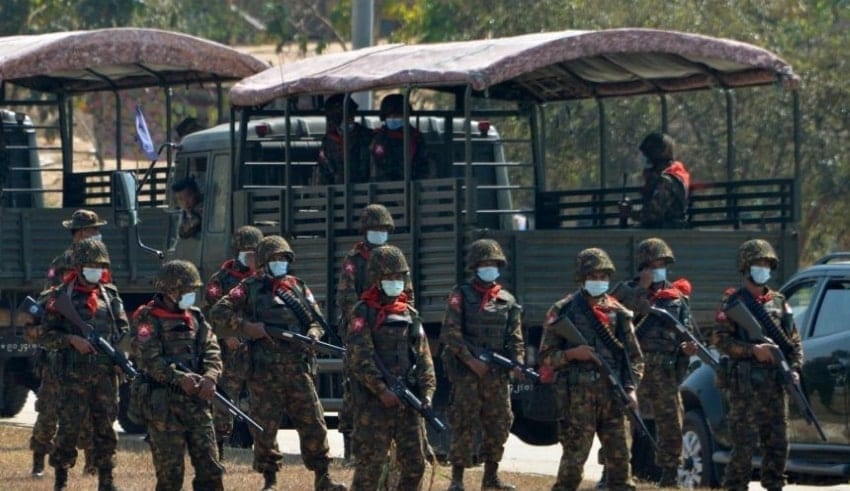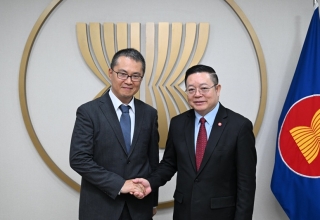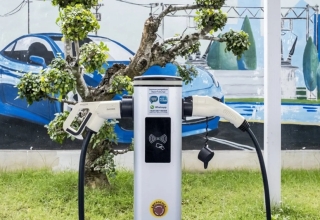
The ASEAN states, including Singapore, have intensively discussed the political crisis in Myanmar and can play a discreet role in helping Myanmar return to stability, Foreign Minister Vivian Balakrishnan told Parliament on Tuesday (Feb 16).
The bloc, however, stands firm on its policy of not interfering in its members’ domestic politics, he added.
Dr Balakrishnan, who responded to questions from Mr Gerald Giam (Aljunied GRC) about the situation in Myanmar, said the key now is not to escalate the situation, but to keep communication avenues open and continually engage key stakeholders.
He said: “We hope fervently for national reconciliation in Myanmar. And the only way this can happen is if all parties, in good faith, sit down, talk, negotiate and achieve reconciliation.
“It is in that context that I express my hope that president Win Myint and the state counsellor Aung San Suu Kyi would be released from detention so that they can sit down at the negotiating table and talk.”
The pair were arrested in early morning raids during the Feb 1 military coup, along with hundreds of members of the country’s ruling party, the National League for Democracy (NLD).
The forced takeover and the resulting violence have been condemned by countries, with the United States imposing its own sanctions targeting the Myanmar military, and the United Nations human rights investigator for Myanmar urging the United Nations Security Council to consider sanctions and arms embargoes.
In his meetings with his colleagues in other nations, however, Dr Balakrishnan said he had “urged against widespread sanctions”
“I’ve said that we should not embark on widespread, generalised and indiscriminate sanctions because the (ones) who will suffer the most, will be the ordinary people in Myanmar,” said Dr Balakrishnan.
And while Singapore is the largest foreign investor in Myanmar, Dr. Balakrishnan said he would refrain from offering specific advice to businesses, stressing that businesses made investments on commercial grounds, not under any political control.
He said, however, he was confident that businesses here are re-evaluating their positions, taking into account the political threats and social complexities that exist now.
In Myanmar, approximately 500 Singaporeans have registered with the Ministry of Foreign Affairs (MFA) and 17 have returned to Singapore after the reopening of Yangon International Airport on Feb 4, Dr. Balakrishnan said. The MFA will continue to maintain close contact with Singaporeans in Myanmar, he added, although the suspension of telecommunications connectivity there may impede communications, noting that this is ” deeply concerning”
























